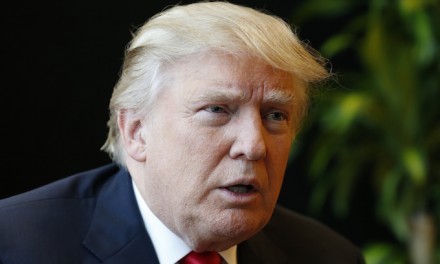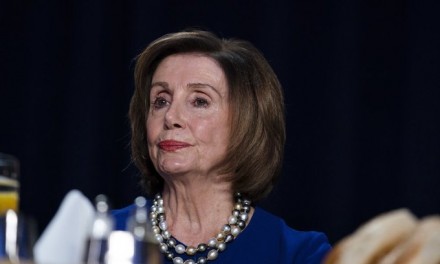The U.S. Senate on Feb. 13 advanced two of President Joe Biden’s judicial nominees, including one who refused to disavow racial quotas.
In another 50–44 vote, the Senate approved Cindy Chung’s nomination to the Philadelphia-based 3rd Circuit Court of Appeals. That includes Republican Sens. Lindsey Graham (R-S.C.), Lisa Murkowski (R-Alaska), and Susan Collins (R-Maine).
In a 52–44 vote, the Senate voted to invoke cloture on the nomination of Gina Mendez-Miro for the District Court of Puerto Rico.
Her confirmation is all but guaranteed with cloture invoked; the final vote to confirm Mendez-Miro will take place at a later time.
Democrats in the Senate have now confirmed 99 of Biden’s judicial nominees and are preparing to confirm the 100th.
Republican Changes to Filibuster
The Democrats have benefited from changes Republicans made to the filibuster near the end of 2020.
Then, Republicans modified the filibuster for judicial nominees, reducing the number of senators needed to limit debate on judicial nominees from 60 to 51.
The move helped Republicans advance Amy Coney Barrett’s nomination to the Supreme Court, giving conservatives a solid hold on the nation’s highest court.
However, with a Democrat now in the White House, Senate Democrats have been able to take advantage of this rule change to push through dozens of judicial nominations without 60 votes.
Chung, who gained attention after an exchange during her hearing before the Senate Judiciary Committee, currently serves as the Assistant U.S. Attorney for the Western District of Pennsylvania.
In an October 2021 press release announcing Chung’s nomination among three others, Biden said, “These individuals were chosen for their devotion to enforcing the law, their professionalism, their experience and credentials in this field, their dedication to pursuing equal justice for all, and their commitment to the independence of the Department of Justice.”
Chung, who has held numerous legal positions since 2002, received her Juris Doctorate from Columbia Law School in 2002. She received her B.A. degree in 1997 from Yale University.
The post’s current holder, Judge Joseph Greenaway, plans to retire in June.
Chung will be the first Asian-American to sit on the 3rd Circuit Court, Senate Majority Leader Chuck Schumer (D-N.Y.) noted during remarks on the floor urging Chung’s confirmation.
“That should make us all proud,” Schumer said.
“Cindy Chung is precisely the kind of person we want on the federal bench,” Schumer continued. “She’s dedicated her life to civil rights, having prosecuted white supremacists and others charged with hate crimes.”
Chung’s nomination advanced in an earlier procedural 52–46 vote on Feb. 9. Chung’s nomination was advanced with the support of Collins, Graham, and Murkowski.
In a Feb. 9 tweet, the Senate Judiciary Committee, which is currently headed by Sen. Dick Durbin (D-Ill.), said of Chung: “As a U.S. Attorney and career prosecutor for two decades, she’s committed to impartiality and advancing the cause of justice—earning her bipartisan support.”
Republicans, however, have concerns about Chung due to her past comments on racial quotas and abortion.
‘Do You Believe In Racial Quotas?’
During a heated exchange with Sen. John Kennedy (R-La.) over racial quotas, Chung refused to disavow them.
Racial quotas, best known in the United States through Affirmative Action programs, seek to benefit people of one racial group over those of another racial group in issues like hiring and college admissions.
“Do you believe in racial quotas?” Kennedy asked Chung.
“Senator, if I were faced with a question regarding racial quotas, I would carefully consider the binding Supreme Court precedent and 3rd Circuit precedent,” Chung began.
Here, Kennedy interrupted.
“What I’m asking is, do you believe in racial quotas?” Kennedy asked, saying that he was working from the base assumption that nominees would respect precedent.
“Sir, if I were faced with that question, I believe the Supreme Court has ruled that in the context, for instance of—” Chung began before again being interrupted by Kennedy.
“I know what the courts [ruled], we both do. I’m just asking your personal beliefs,” Kennedy said. “Do you believe in racial quotas?”
“Uh, sir I want to be very careful since I am a judicial nominee,” Chung replied. “I certainly wouldn’t want to say anything that could forecast for any future litigant how they thought I would rule.”
“I don’t see the problem in you telling us your beliefs,” Kennedy replied. “I’m gonna ask you one more time: do you believe in racial quotas?”
“Uh, I’m sorry senator, again, because I’m a judicial nominee I …”
“You’re not gonna answer,” Kennedy cut in.
“It would not be prudent for me to offer an opinion,” Chung said.
Questioned Over Abortion
Kennedy also grilled Chung on abortion.
Previously, the standard set out by the Supreme Court in 1973’s Roe v. Wade had held that there is a Constitutional right to an abortion. That standard placed limitations on state regulation of abortion, particularly in the first trimester.
In its most recent ruling on the subject, Dobbs v. Jackson, the Supreme Court ruled that the right to regulate abortion lies with the legislatures of the states, not with the federal government.
Abortion opponents hailed the move as a return to federalism as the American Founders envisioned. Abortion advocates argued that the move threatened to undercut an existing right and characterized it as an attack on women.
“Do you believe abortion is an issue that should be decided by the states?” Kennedy asked.
“In the recent ruling in Dobbs, the Supreme Court did say that the question of abortion has been returned to the people and their elected representatives,” Chung said noncommittally.
“I know—that you’ll follow Dobbs,” Kennedy replied. “But do you believe abortion is an issue that should be decided by the states? I’m trying to understand what you believe.”
“Well certainly under Dobbs, returning that issue to the people and their elected representatives does put it within the realm of the states,” Chung said, again replying to the normative question with a descriptive statement.
“Do you believe that that’s the right decision?”
“Senator, I would not hesitate to apply Dobbs if I were faced with that …”
Kennedy cut in, “Once again, maybe I’m not being clear, I’m sorry. I’m asking what you believe. Do you believe that abortion should be decided by the states as opposed to the federal government?”
“I don’t believe it would be prudent to offer an opinion,” Chung replied.
Mendez-Miro’s nomination will be taken up by the Senate later. With cloture invoked on a debate of the nomination, her confirmation is all but guaranteed.
When the Senate confirms Mendez-Miro, she will be the 100th federal judge appointed by Biden and confirmed by the Senate.



















She probably wants to be the first Asian on SCOTUS. You know racial quota thing.
That includes Republican Sens. Lindsey Graham (R-S.C.), Lisa Murkowski (R-Alaska), and Susan Collins (R-Maine).
Thank you RINOs. We can always count on you to throw us under the bus!
TImes like this, i’d like to throw them UNDER SOMETHING heavier than a bus!
If the final vote was 50-44, that means 6 senators were AWOL. Your tax dollars hard at not working! The missing 6 were probably all Dems, so it wouldn’t have mattered anyhow.
Chung was an OK US Attorney here. Disappointing to see she wimped out on the hard questions.
Sometimes, what’s most revealing about a person, isn’t what they say, but what they fail to say. I’d guess, based on her non-answers, she’s both in favor of racial quotas, and the government deciding abortion policy.
Quotas are rarely ever a good thing. People should be hired based on their qualifications and experience, not skin color, disability, gender, sexual orientation, etc. I’m a totally blind individual. I’d much rather be hired because of what I know and am able to do, rather than on disability alone.
We have seen what quotas get us – 5 black cops in Memphis who beat another black man to death, Pete Bootygiggles, an openly gay man, who doesn’t know jack about transportation, and a trans person, who worked for the Department of the Interior, who stole very expensive luggage – not once, but two times that we know of.
Shame on the Dems & particularly the RINOs who voted for this nominee!